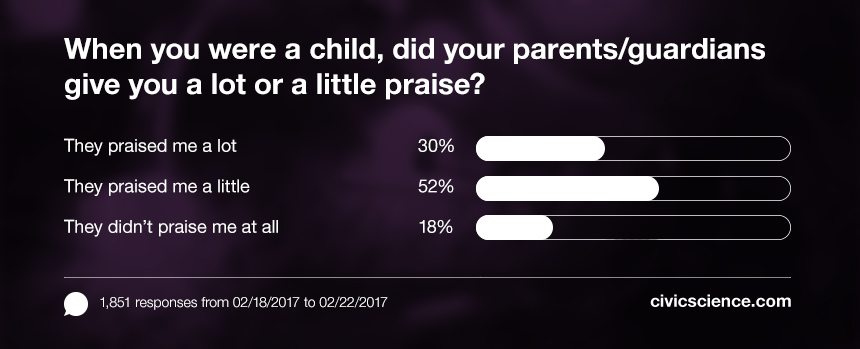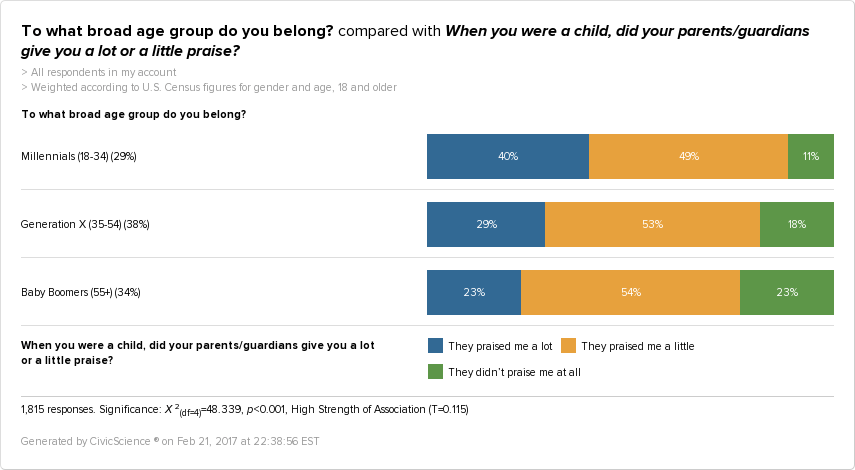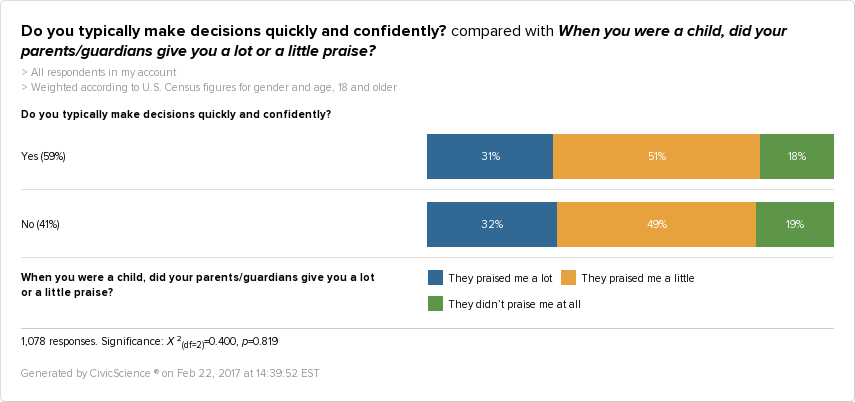I’m not sure why, but lately I’ve been thinking a lot about parenting. Maybe it’s the fact that I work in an office with mostly parents, all with adorable kids. I mean, adorable. Second, I’ve been inundated with articles on social media surrounding the pros and cons of praising children. It’s a hot topic right now in the parenting and want-to-be-parenting worlds.
New studies show that praising children may not be as beneficial as originally thought. There are even some who compare excessive praise to a dangerous chemical – and even worse – a tool of manipulation to force children into obedience.
Then there are those, such Dr. Barish, who asks:
“Don’t children deserve the same recognition and encouragement that we do, as adults? When a child draws a picture, builds a block tower, practices an instrument, cooks a meal or works hard on her schoolwork – when they are proud of what they have done, they look to us, not only for our interest, but also for our approval. Children want us say, ‘Wow, I really like that.’ And we should.”
Every publication from Psychology Today to Time has covered this perplexing parenting question. So, we asked this question to all U.S. adults:
Excluding those who answered “I don’t know / does not apply,” 30% of U.S. adults say that their parents praised them a lot, 52% say they praised them a little, and 18% received no praise at all.
It’s important to note, however, how subjective these responses are. “A lot of praise” for one person may be considered “a little praise” to another. Also, perhaps some children excelled, and therefore received more praise – a chicken or the egg type of situation. Regardless of these extrinsic factors, we uncovered some fascinating insights.
Here are the three most statistically meaningful insights:
1. Millennials are much more likely than Gen Xers or Baby Boomers to say that their parents/guardians praised them a lot.
2. People who say they were praised a lot are much more likely to say they are happy.
3. Gen Xers who make under $25k each year are much more likely to say they were not praised at all as a child.
AGE
This seems to confirm the anecdotal evidence that every Millennial hears from their seniors. There is a huge parity in child-rearing behavior when it comes to generation. 40% of Millennials say they were praised a lot as a child, compared to only 23% among Baby Boomers.
Is this a good thing or a bad thing? Perhaps neither? Maybe we can help find out.
HAPPINESS
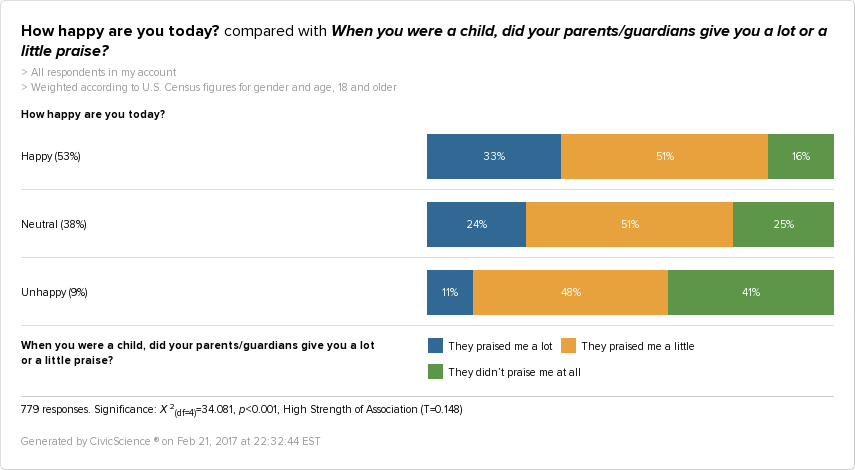
It seems that it might not be such a bad thing to praise your child a lot. 33% of those who say they are happy say they were praised a lot as children. That is exactly 3x the number as those who say they are unhappy. Those who are so-so on the happiness scale fall right in between.
This seems to confirm one train of thought, which says that praise teaches children that they are valued by others, and therefore they learn to value themselves. Naturally, people who value themselves for who they are and what they can accomplish are happier. Or not.
What do you think?
CONFIDENCE
Maybe there’s also a correlation, then, between praise and confidence?
Nope. On some level, I thought that there would be a correlation here, and am somewhat surprised that there isn’t.
And last but not least…
INCOME
When dealing with income, we can’t look at all adults together, due to the disparity of income between older and younger folks. As we’ve seen, there is also a huge disparity among those who were praised or not as children, according to generation. So, to get a real-world look at how praise as a child affects income later in life, let’s take a look at Gen X only, who are all in a relatively similar life stage. Here’s what we find:
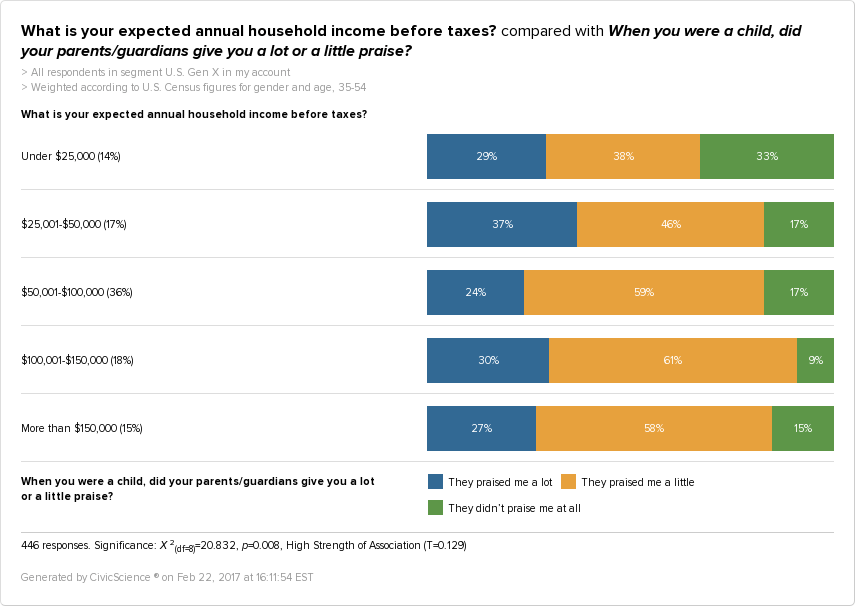
Again, this is only looking at Gen X (ages 35-54). The most statistically-relevant insight we discovered is that Gen Xers who make under $25k each year are much more likely to answer, “They didn’t praise me at all.” In fact, 33% of Gen Xers making under $25k each year say they weren’t praised at all, compared to only 15% among Gen Xers making more than $150k each year.
THE END
I hesitate to draw any conclusions here, given that parenting is an extremely personal thing to each individual, and that I am not a parent. What I do know, however, is that to make informed parenting decisions, you need to know what choices you have, and what the consequences of those choices may be. I say “may” because those consequences are constantly evolving with new research.
So, I hope that this data can provide that extra boost of knowledge and information so you can make the most informed choices possible. And if you’re a parent who has read this far for the sake of your children, they are lucky to have you!
